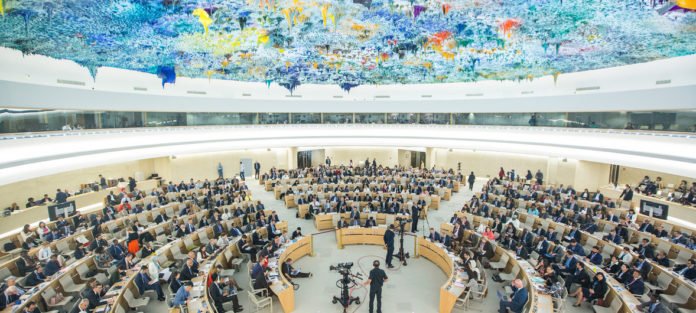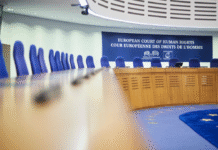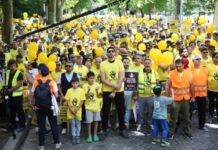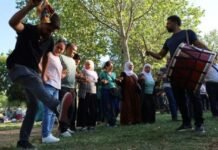The Turkish government’s refusal to acknowledge and address key issues at the core of the human rights crisis the country is currently facing shows that it is not serious about the UN’s Universal Periodic Review (UPR) process, said Human Rights Watch in a press statement on Tuesday.
The rights watchdog said if the Turkish government were serious about its engagement with the UPR process, “it would commit to address the increasing erosion of judicial independence and abusive use of criminal proceedings and detention to target perceived government critics and opponents; the increasing restrictions on free speech and media; and the systematic failure to investigate abuses committed by state officials such as torture and ill-treatment in custody.”
The statement comes after the adoption of the outcome of the Universal Periodic Review of Turkey at the 45th session of the UN Human Rights Council. The UPR is a unique process that involves a periodic review of the human rights records of all 193 UN member states. It provides an opportunity for all states to declare what actions they have taken to improve the human rights situation in their countries and to overcome challenges to the enjoyment of human rights.
“We deeply regret that Turkey refused to accept the recommendations to introduce a constitutional amendment to make the Council of Judges and Prosecutors [HSK] independent of the executive.” the statement said. “Without this fundamental structural amendment, Turkey’s justice system will remain under political control of the presidency and ruling party.”
The HSK is the top judicial administrative body in Turkey that governs the appointments, assignments, promotions and disciplinary provisions of judges and prosecutors.
In a letter to Turkey’s president, Recep Tayyip Erdoğan, on September 14, UN special rapporteur on the independence of judges and lawyers Diego García-Sayán had voiced similar concerns about the HSK and had said the law governing the board continues to have adverse effects on the independence of the judiciary and the separation of powers.
The statement cited the prolonged and arbitrary detention of human rights defender Osman Kavala and politician Selahattin Demirtaş as examples of political court decisions and Turkey’s readiness to flout the binding judgments of the European Court of Human Rights.
HRW also criticized Turkey’s reluctance to revise its anti-terror law. The watchdog said under that law tens of thousands of people in Turkey have been unjustly detained, prosecuted and convicted for exercising rights protected in the European Convention on Human Rights. According to HRW, crimes such as “membership in a terrorist organization” should be much more tightly defined in the law so that their application is restricted to those for whom there is evidence of material connection to violent acts of terrorism.
The statement underlined the contradiction between the claim of the Turkish delegation that Turkey had already implemented a recommendation to ensure protection of the rights to freedom of information and expression and the introduction in July of draconian new restrictions on social media companies. The new legislation forces companies such as Twitter and Facebook to comply with Turkey’s requests to censor online content if they want to avoid bandwidth reduction and being rendered unusable. HRW urged Turkey “to repeal the new law without delay to honor its obligation under its own laws and under international law to uphold the right to freedom of expression.”
According to HRW, the human rights crisis in Turkey has deepened since the previous UPR in 2015. “The government’s responses to recommendations made during this cycle raise serious concerns about its willingness to engage with the strong aspiration of so many of its citizens to democracy and human rights.” the statement said.















